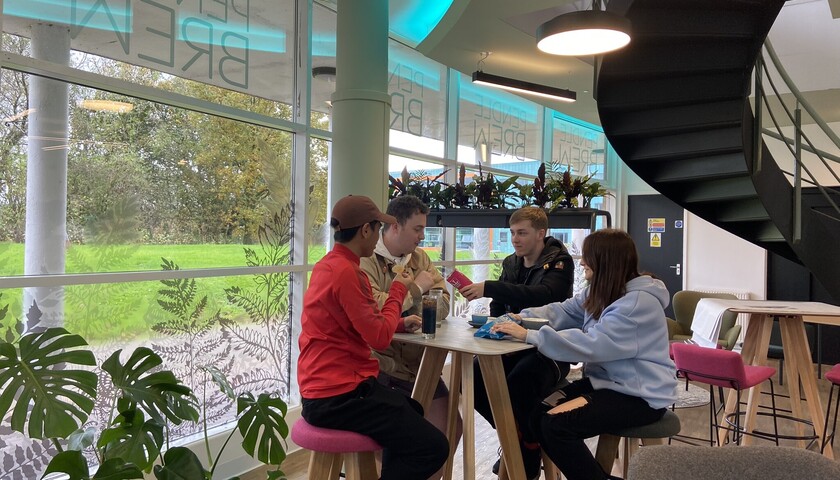Philosophy and Politics at Lancaster will equip you with the tools of clear thinking and political understanding, skills that are needed to answer challenging questions of human rights, justice, and the nature of our institutions of governance. At Lancaster, you won’t simply study politics and philosophy alongside each other – we will explore the subjects in tandem. This will provide you with a deeper, more nuanced grasp of political ideas and practices, along with a distinctive skill set that will appeal to employers.
Why Lancaster?
- Study a joint degree that combines the debate of key philosophical questions and exploration of the contemporary political scene
- Become a confident communicator who can draw on both skilled political analysis and the critical thinking skills inherent in the study of philosophy
- Benefit from expert-led teaching by academics who regularly collaborate with government bodies such as UK parliament, on important issues such as racial injustice, voter rights, and migration
- Join the only university to offer a dedicated Politics Policy School with the HM Government Open Innovation Team
- Gain valuable work experience with internship opportunities through the Richardson Institute for Peace Studies, known for its cutting-edge research
Real-world implications
Philosophy and Politics at Lancaster will provide you with the skills needed to think clearly about the deepest questions of politics – approaching them with theoretical rigour and understanding their practical implications for the real world. You’ll learn how ideologies influence practice, how values shape policies, and the importance of concepts such as justice, fairness, and equality. You’ll explore the nature of human freedom and the state, the ethical challenges of power and influence, and the complexities of global justice and human rights.
You’ll debate the big questions surrounding politics and analyse solutions using a philosophical mindset. Is democracy the best system to tackle the pressing global challenges of climate change and migration? What are national borders, and should they exist? Should justice ever be sacrificed for the sake of peace? You’ll learn to answer these questions and more.
Tackling contemporary issues
During this course, you will study a comprehensive array of key themes in both Politics and Philosophy. You will examine topics including political behaviour, political economy, political philosophy, metaphysics, epistemology, and ethics. Studying comparative politics, you will develop a wide range of employable analytical skills that you will apply to researching political issues from across the globe including China, USA, the EU, the UK, Russia, Asia and Africa.
As you progress through the course, you will explore theories of power and the state, and applied philosophy, and will develop your critical thinking and research skills by undertaking training in research methods and a guided project in Philosophy.
A multifaceted skill set
By studying Philosophy and Politics at Lancaster, you’ll develop a unique skill set and address fundamental questions that face modern society. You’ll emerge as a confident communicator who can draw on the methods of political science, such as data collection and analysis – as well as the critical thinking skills developed by the study of philosophy.
Putting your knowledge and skill set into practice, you will be supported in presenting your work across a range of mediums. You will learn through interactive and collaborative sessions such as policy labs, and simulations including mock select committees, mock citizens assembly and mock PMQs. In presenting your work, you could be creating policy briefs, podcasts, reflective diaries, blogs, research portfolios, or policy memos and evaluations.
Future focussed learning
As part of your degree, Lancaster offers career-boosting employability training that will help you develop your career plans, strengthen your CV, and clearly articulate the skills and experienced you now offer to employers.
You’ll have the opportunity to work with experts who carry out cutting edge research with government bodies and NGOs, and to apply to undertake experience-building research internships working with academics and external organisations. You'll benefit from the opportunity to attend seminars and workshops that bridge theory with practical application, and to undertake problem-based learning that will give you experience in working independently and in-teams.
You will have the opportunity to boost your prospects further by applying for one of the annual internships offered by Lancaster’s Richardson Institute for Peace Studies.
This competitive programme allows you to work alongside leading policy and research organisations whilst providing you with opportunities to:
- Publish your work
- Work with students across the school on high-impact research projects
- Work with organisations such as NGOs, think tanks, and charities
- Gain valuable work experience that will be attractive to future employers










